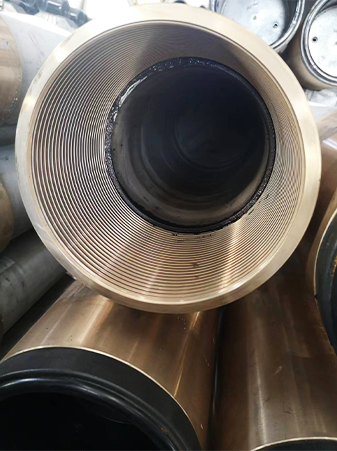- Afrikaans
- Albanian
- Amharic
- Arabic
- Armenian
- Azerbaijani
- Basque
- Belarusian
- Bengali
- Bosnian
- Bulgarian
- Catalan
- Cebuano
- Corsican
- Croatian
- Czech
- Danish
- Dutch
- English
- Esperanto
- Estonian
- Finnish
- French
- Frisian
- Galician
- Georgian
- German
- Greek
- Gujarati
- Haitian Creole
- hausa
- hawaiian
- Hebrew
- Hindi
- Miao
- Hungarian
- Icelandic
- igbo
- Indonesian
- irish
- Italian
- Japanese
- Javanese
- Kannada
- kazakh
- Khmer
- Rwandese
- Korean
- Kurdish
- Kyrgyz
- Lao
- Latin
- Latvian
- Lithuanian
- Luxembourgish
- Macedonian
- Malgashi
- Malay
- Malayalam
- Maltese
- Maori
- Marathi
- Mongolian
- Myanmar
- Nepali
- Norwegian
- Norwegian
- Occitan
- Pashto
- Persian
- Polish
- Portuguese
- Punjabi
- Romanian
- Russian
- Samoan
- Scottish Gaelic
- Serbian
- Sesotho
- Shona
- Sindhi
- Sinhala
- Slovak
- Slovenian
- Somali
- Spanish
- Sundanese
- Swahili
- Swedish
- Tagalog
- Tajik
- Tamil
- Tatar
- Telugu
- Thai
- Turkish
- Turkmen
- Ukrainian
- Urdu
- Uighur
- Uzbek
- Vietnamese
- Welsh
- Bantu
- Yiddish
- Yoruba
- Zulu
Exploring the Importance of Casing Collar in Oil and Gas Well Operations and Integrity Management
Understanding Casing Collars in Oil and Gas Drilling
The oil and gas industry is a complex field that involves various technical components and equipment, one of which is the casing collar. While often overlooked by those outside the industry, the role of casing collars is crucial in maintaining the integrity and safety of drilling operations. This article delves into the significance of casing collars, their functions, and the various types used in drilling operations.
What is a Casing Collar?
A casing collar is a vital component of the casing string used in oil and gas wells. It serves as a mechanical connector between different sections of casing. Casing, in general, refers to the steel pipes that are inserted into the borehole to provide stability and prevent the walls from collapsing. The casing collar adds an additional layer of functionality to this structure. Specifically, it is designed to facilitate the installation of various devices, such as centralizers and packers, which are essential for the well's successful operation.
Functions of Casing Collars
1. Connection Points The primary function of casing collars is to act as a junction between two sections of casing. This is particularly important when constructing deep wells that require multiple casing strings. The collars ensure that these sections are securely connected and can withstand the pressures encountered during drilling.
2. Well Integrity Casing collars play a critical role in ensuring the overall integrity of the well. By providing a secure connection, they help prevent the ingress of fluids from surrounding geological formations, which could compromise the well's stability and safety.
3. Facilitation of Equipment Casing collars are designed to accommodate various types of downhole equipment. For instance, certain collars have threading that allows for the attachment of centralizers or packers, which assist in maintaining the position of the casing and ensuring the effectiveness of cementing operations.
4. Identification Many casing collars come equipped with identification features such as barcodes or tags. This allows for easier tracking and management of the casing components, which is essential for maintaining accurate records throughout the drilling process.
casing collar

Types of Casing Collars
There are several types of casing collars used in the oil and gas industry, each designed for specific applications
- Regular Casing Collars These are standard collars used for most drilling operations. They provide a basic connection between casing strings.
- Float Collars These are specialized collars that include a one-way valve. They are primarily used in cementing operations to allow horizontal displacement of the cement while preventing backflow.
- Cementing Collars These collars are specifically designed to help with cement placement. They often come with openings or ports that allow cement to flow through at predetermined intervals, aiding in the cementing process.
- Packer Collars Used in conjunction with packers, these collars create a seal that prevents fluid flow between different strata in the wellbore.
Conclusion
Casing collars may seem like a minor component in the grand scheme of oil and gas drilling; however, their importance cannot be overstated. They ensure the structural integrity of the well, facilitate the use of essential downhole equipment, and help manage the drilling process effectively. As the industry continues to innovate and evolve, understanding the role of each component, including casing collars, will be vital for engineers and operators aiming to improve safety and efficiency in drilling operations. The ongoing advancements in materials and designs for casing collars promise to enhance performance, ultimately benefiting the entire sector.
-
Tubing Pup Joints: Essential Components for Oil and Gas OperationsNewsJul.10,2025
-
Pup Joints: Essential Components for Reliable Drilling OperationsNewsJul.10,2025
-
Pipe Couplings: Connecting Your World EfficientlyNewsJul.10,2025
-
Mastering Oilfield Operations with Quality Tubing and CasingNewsJul.10,2025
-
High-Quality Casing Couplings for Every NeedNewsJul.10,2025
-
Boost Your Drilling Efficiency with Premium Crossover Tools & Seating NipplesNewsJul.10,2025







